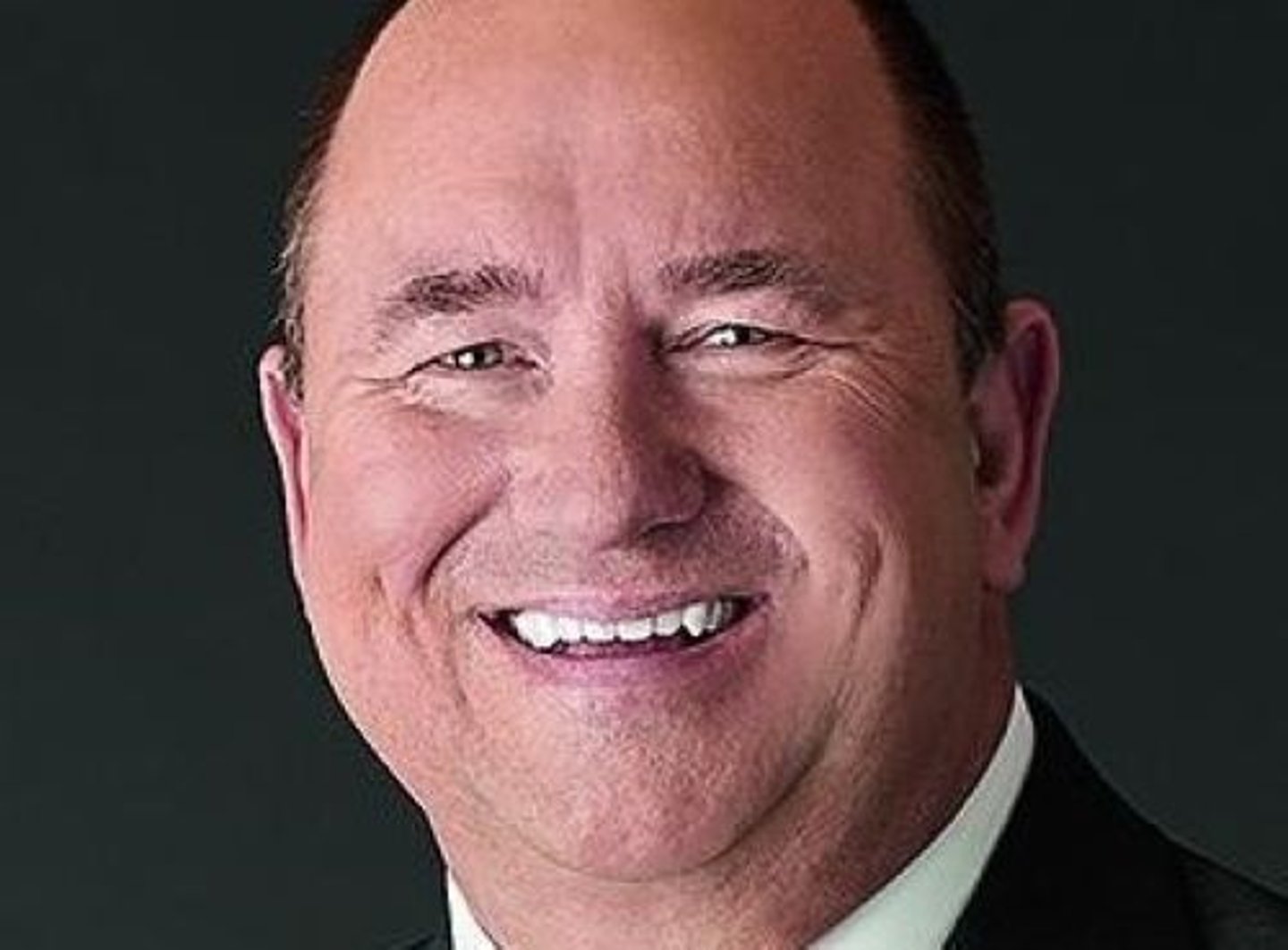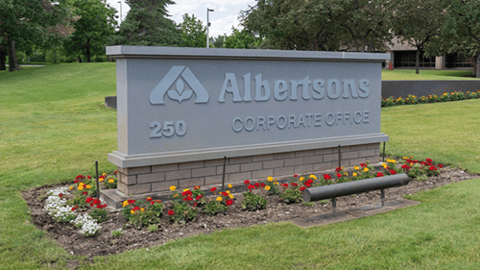EXCLUSIVE: Inside Hy-Vee’s Next Evolution, Part 2
The past year has been a busy one for popular Iowa grocery chain Hy-Vee. In January 2023, Hy-Vee announced that Jeremy Gosch would become CEO of the company, taking the reins from iconic leader Randy Edeker, who led the company more than 10 years and remains executive chairman of the board of directors until July 31. In an exclusive interview, Progressive Grocer sat down with Gosch (Part 1) and Edeker (Part 2) to talk expansion strategies, succession planning, and the price of the pandemic.
Progressive Grocer: You are an industry icon. How did you decide when your time was up?
Randy Edeker: For me, this has been a calculated decision. I started thinking about how I wanted to do it several years ago. In Hy-Vee, it's different than most companies. You are obligated to find a good replacement. When Ric Jurgens, Hy-Vee’s former CEO, passed it to me, the night before he made me president, he said, "I'm 98% sure I'm going to make you president." So of course, I said, "What's the 2%?" You’ve got to promise me you'll find a replacement for yourself.” Last year I announced to the board and to my executive committee that Jeremy would become CEO and that I was going to stay on for... Actually, I was going to stay until the end of this year. And then I really looked at where we're at, where Jeremy’s at, how he's doing, what I want to do, and just said, "No, July's good." My wedding anniversary is August 1, so...
PG: Describe the process of finding and nurturing your replacement.
RE: I started really thinking about my replacement several years ago. Jeremy was a store director at the time. [Hy-Vee President] Donna [Tweeten] and I had dinner with him and other directors, and he spoke about the business different than they did. He spoke about it more globally. He really looked at the business in a larger picture, beyond just his store. So I got in the car and told Donna, "He's going to come into the corporate office in the next few months and I'm going to put him in the district supervisor position." He’s had seven different jobs in five years but I wanted him to be well-rounded and understand the whole business.
PG: But Randy, why now? You are still young.
RE: I went through 2008 and 2009 with the economic downturn and banks closing. And then I led us through COVID-19 for three years. It was very difficult on the whole industry.
PG: It was horrible. I don't think we can talk about it enough, about how horrible it was for the industry.
RE: There's still ramifications. It still lingers. Just SKU count for example. Some companies pre-pandemic had 180 items and now they have 90, still only have 90. And it's like, "What happened to the other 90?"
PG: These are the things I think about at 3 o'clock in the morning.
RE: The customer has never been the same. And I don't know that they ever will be. I think the customer has really dramatically changed how they view things. One of the things that Jeremy did was lead in e-commerce during the pandemic. We practically quadrupled our Aisles Online e-commerce business in a day during COVID-19 and we had to figure out how we're going to get groceries to all these people who didn’t want contact with anybody. So we ordered 150 shipping containers and dropped them out in the middle of our parking lot and painted pickup lanes, and that's how we started getting groceries to customers. We adapted very rapidly.
PG: Just incredible what this industry did for Americans. It’s understandable; you went through a rough period in this industry. Not to mention all of the crazy stuff happening in stores now.
RE: If you sat in the morning with us and looked at the things that happen the day and night before in our stores. … From a strategic standpoint, I don't want grocers dealing with these situations. They're not trained for it. They don't get paid for it. I want asset protection guys dealing with those situations. So we have professionals that have joined our company from law enforcement; I never believed they would leave law enforcement to come work for a private company. But they gladly have. And so we now have a senior vice president over all of retail security and enterprise security. We also implemented an SOCC, strategic operations command center, to help us protect our employees and customers.
PG: This is within the past couple of years?
RE: Last two years. We were paying for a lot for private security to help in our stores. We just elected to make those positions our employees. And so it's not all new expense. It's just a different expense and it's a different level of professionalism now. We also now have a large fleet for disaster relief that we use and deploy across the country when a natural disaster occurs. A lot of people don't understand how big our fleet is. When it's all parked in the parking lot, it's like, "Oh, my gosh." There area lot of assets we can deploy and use to help our communities or even those outside our region.
PG: It is.
RE: I always say you can be a company with a reputation, but you have to be real. If you don't actually do the things, eventually people will understand you're just marketing yourself in a way that's not true. I always say to my people, "We're helping people in places that we will never go and people who we will never meet." And that is a good thing.
PG: Do you think it'll be harder for Jeremy to find the next Randy or the next Jeremy?
RE: It takes a very unique person to be able to manage and juggle all the balls that you have to in this position, especially within our company, because we're very diverse, between pharmacy and all the different things that we do. Sometimes we do presentations on who we are and people have no idea all of the things that we're in.
PG: And now RedMedia.
RE: RedMedia is huge. And that's something strategically that I looked at. Jeremy and I were sitting together several years ago at an officer's retreat and I drew out all these circles on a paper and he was sitting next to me. He's like, "What is that?" I said, "I don't know what this is yet, but this is going to be a big deal." I predicted then that someday grocery will be eradicated, and groceries will almost be given away for media dollars. And if you watch what's happening…
PG: It's on that path.
RE: They're on that path. They're going to use media dollars to be able to sell groceries cheaper and cheaper and cheaper. Amazon and Walmart, it's happening now, and we're preparing for it. Which is why we launched a retail media network. To be really honest, people don't know exactly what retail media even is yet and how it's going to interact, but it is going to be the thing. It's going to completely transform the grocery industry. So we started working on it and launching it, trying to get the regionals and the independents to pay attention because you've got these national networks that are set up. And for advertisers, you're going to go where it's easiest to place your buy.
PG: You’re going to need more great minds to juggle the retail media business too.
RE: It's important to keep fostering, keep growing, keep finding what employees want, what they need to attract them to your company. That's very, very important. And we're going to continue to work at that to attract those people. I've looked at our leadership team very globally. You'll see us stay true to who we are but we're also bringing in experts in various fields. And, you'll see us continue to bring in experts in areas to help enhance our leadership team and drive us forward.







